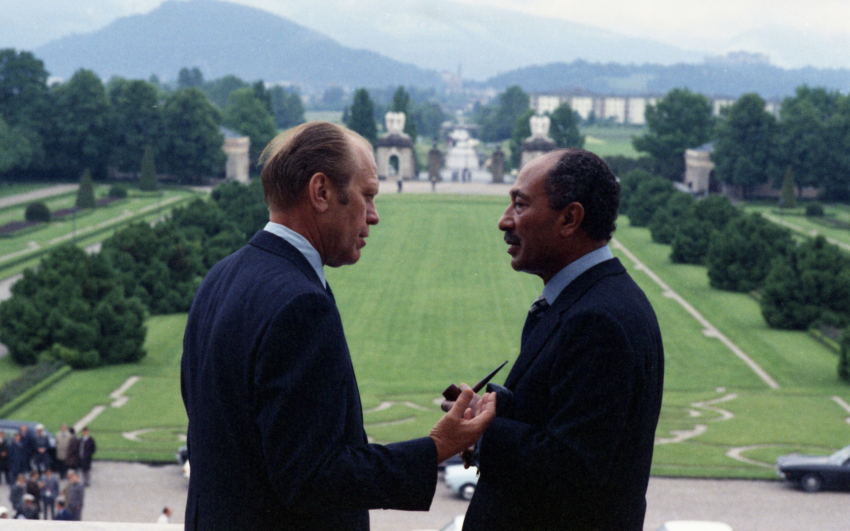PHOTO: Presidents Gerald Ford and Anwar Sadat, 1974. Public Domain, US National Archive.
“Part of the creative experience of a community is learning how to deal with conflict when it arises, and Friends are not usually good at this. ‘Speaking truth in love’ is a Quaker cliché, but ‘papering over the cracks’ is the principle more commonly acted upon.” Quaker Faith and Practice 10.22
Friends, we have a testimony to truth. When we speak the truth, we want to do it lovingly. But if love is how we communicate, truth must always be what we communicate. It is all too easy to focus on one and forget about the other.
Friends, we also have a testimony to plain speaking. Plain speaking is not just about the outdated practice of calling people ‘thou’ instead of ‘you.’ Plain speaking is about being open, honest and direct when we talk with each other. It is about ‘speaking truth in love.’
If we hear something that sounds disturbing or hurtful, we have a choice. We can assume malicious intent, or we can question what we’ve heard, ask for clarification, discuss how it has come across. How else are we ever to know if it was intended to be hurtful or whether we even heard it correctly?
And if, as Friends, we really believe there is that of God in everyone, then surely our starting point is always to assume good intentions. Before assuming that someone else is purposefully malicious, we need to probe deeply into our own assumptions as well as into the heart of that other person.
Of course, sometimes people are purposefully malicious. But we owe it to our faith, as well as to our fellow human beings, to be open, honest and direct in our communications with each other until we make that determination.
Misunderstandings and conflict are inevitable when they do not get discussed openly, honestly and directly. No conflict has ever been resolved by pushing it under the carpet. Avoiding conflict can, at best, keep trouble at bay until it becomes someone else’s problem. At worse, conflict merely festers and becomes a much worse problem when it is not properly addressed.
Friends, this is above all about our Peace Testimony. We are committed as Quakers to the peaceful resolution of conflicts. And we know that resolving conflicts peacefully requires communication. It requires discussion, dialogue, negotiation… and when these become impossible, it requires the help of an outside mediator.
This is not just about how to end wars. It is about how we deal with our own internal conflicts within our Meetings and our Quaker organisations. Unless we communicate with each other -openly, honestly, and directly, we just continue to store up troubles for the future.
As Quakers, we know that communication is important. And yet we continue to behave sometimes as if communication is somehow optional and can be dispensed with when it becomes uncomfortable. Communication can never be dispensed with, Friends. It is our only hope for a world of peace, justice and equality.
